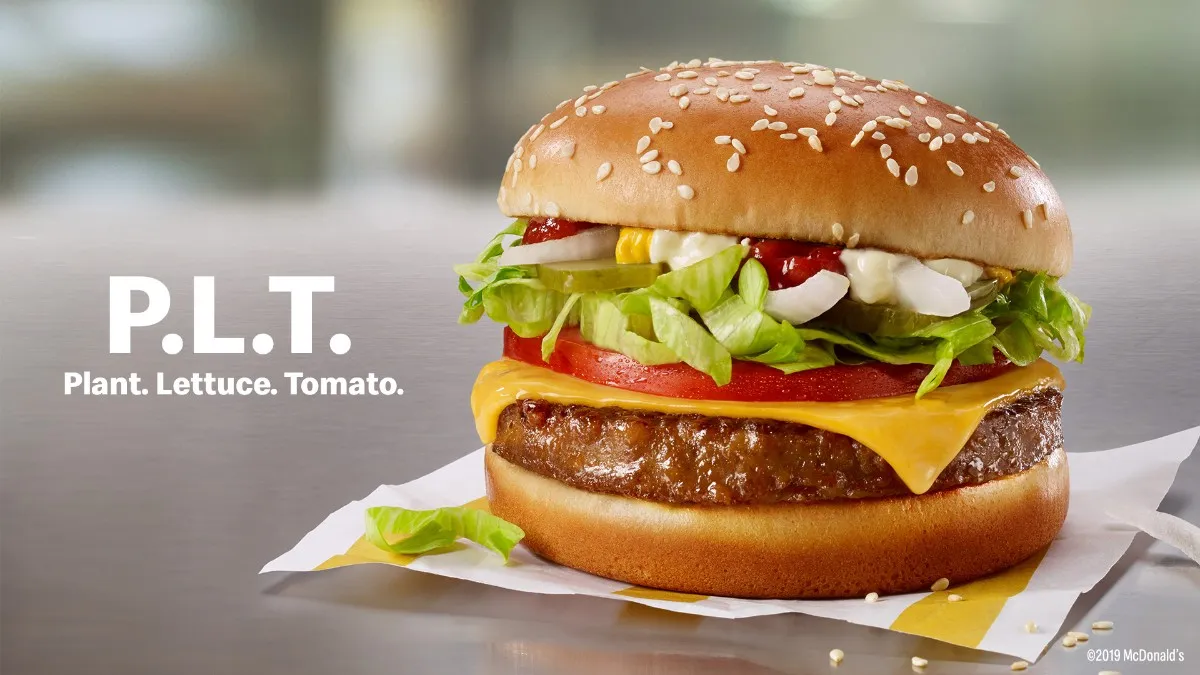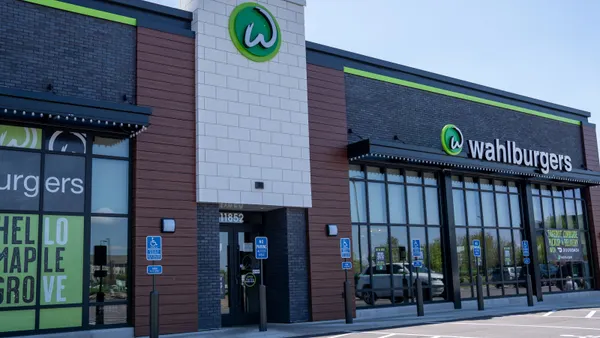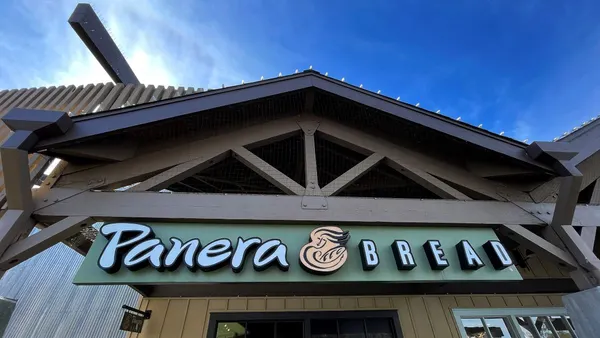Dive Brief:
- McDonald's is selling 20 to 30 Beyond Meat burgers per day in its Canadian restaurant pilot, but the chain is also racking up daily sales of 100 burgers or more in more urban areas, according to UBS research reported by Reuters.
- The report also found that the brand could someday sell more than 250 million of its plant-based P.L.T. burgers each year if it expanded the offering to its nearly 14,000 U.S. stores.
- Some estimates have suggested that McDonald's would need to sell 300 to 400 burgers a week for the offering to be viable.
Dive Insight:
The question of whether plant-based meat substitutes are a passing fad or permanent addition to menu boards has been ongoing. But if McDonald's were to bring its Beyond Meat-based burgers to its U.S. system, as the UBS report posits, it could have a sweeping effect on the American QSR space — another iteration of the "McDonald's effect."
But this possible future is likely still far off, given the production constraints of major plant-based meat suppliers like Beyond Meat and Impossible Foods. Impossible Foods suffered a product shortage earlier this year, for example, that left the same restaurants eager to put its food on the map in a serious lurch. The brand struggled to satisfy supply needs from some of its restaurant partners including While Castle, Red Robin and Burger King. Beyond Meat met similar shortages in 2017 and 2018 forcing it to rebuild its supply chain and to open new facilities.
Although investors may be willing to pour more venture capital into the heavily-funded plant-based space, scaling up for the purpose of satisfying McDonald's supply needs would be a precarious position to be in. Unlike its competitors, who have brought the name of their partner plant-based meat suppliers front and center with Del Taco's Beyond Taco, Burger King's Impossible Whopper and Dunkin's Beyond Sausage Sandwich, McDonald's has kept its product brand neutral — P.L.T. stands for Plant, Lettuce, Tomato. This could be in anticipation of future supply failures. If the brand decided to switch from Beyond Meat to Impossible, or even develop its own plant-based formula in-house, it wouldn't disrupt its branding or alienate consumers.
If it did stick with Beyond Meat in UBS's hypothetical future, however, Beyond Meat could rake in an additional $325 million in annual sales, according to the report. McDonald's also could see a positive impact to same-store sales, especially if a U.S. rollout has the same success as Burger King, which had a 5% boost to U.S. comp sales from the Impossible Whopper during Q3 2019. This amount of same-store sales growth could really help McDonald's, which continues to suffer from slowing traffic in the U.S.
If McDonald's does crack the plant-based substitute supply problem, it could push the offering from the fad category to a more permanent offering. So far, McDonald's seems to be exploring a variety of approaches to satisfying the current trend towards plant-based eating, including offering its first vegan menu options. It launched a vegan burger in Germany earlier this year featuring Nestle’s soy and wheat proteins, for example.
Recently, it announced the upcoming launch of its first fully vegan meal in the U.K. and Ireland. The meal, featuring veggie dippers made from red pepper, rice, sun-dried tomato pesto and split peas, will roll out in January. The fast food giant appears to be searching for menu items that satisfy the plant-based demand, but still allow it to be nimble in its sourcing. In-house formulations could give the supplier more flexibility when responding to ingredient shortages and better control over its margins in lieu of relying on Impossible Foods or Beyond Meat. This would follow McDonald's current strategy of using more than one supplier for its regular burger patties, as well.












